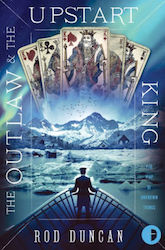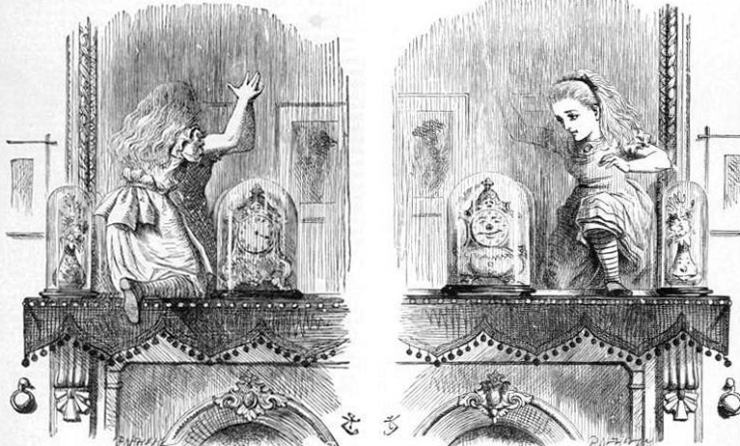The directions say ‘turn right,’ but I end up turning left. That is my experience of dyslexia. It is looking at a clock face to read the time and having to figure out which side I’m observing it from. It means the constant marvel of ‘normal’ people doing things automatically that for me require thought.
For a writer, it is a gift.
Before we get into that, let’s go back to the whole learning-to-read-and-write debacle. At first I couldn’t get it. And then the teachers couldn’t get me. If you’d told them I’d be a novelist one day, they’d have shaken their heads. Poor deluded fool, they would have thought.
When I did eventually get the knack, it turned out that reading was still hard work. My solution was to search for the maximum load of ideas delivered in the minimum number of words. As for many dyslexics, I found this in science fiction, particularly short stories. Asimov, Clarke, and Sheckley were my usual fare as a teenager in the 1970s. They were my gateway drug. Fantasy novels followed: Tolkien, Moorcock, Peake. Longer books meant a bigger investment in concentration, but they offered immersion in societies so different that I could even imagine I might find one in which I wasn’t out of step.
Making up stories had been a compulsion all through my childhood; a fantastical and blissful means of escaping from the trauma of school. With the arrival of the word processor, I started to be able to write them down. I was in my late twenties by then. I committed some poetry. Then a short story. Then I started writing a novel, enabled by naive audacity and a total ignorance of the scale of the task.
But dyslexia had prepared me for the challenge in three ways. I’d spent my life trying to decode the strangeness of other people’s minds, their mirror thinking. That was training in character work. I’d practised re-designing society, searching for versions in which I might fit. That was worldbuilding. And to solve the puzzle of my ineptitude, I’d trained myself to interrogate the ways in which things were done, asking “Why? and “What if?”—the very foundation of speculative fiction.
What if technological progress were to be held back by law and international treaty? How long could the artifice of such a system be maintained? What might be the manner of its demise? I wrote The Fall of the Gas-Lit Empire trilogy to find answers.
We need the view of an outsider, Steerpike, to help us understand the bizarre world of Mervyn Peake’s Gormenghast. So it seemed to me that we might need someone from the margins to explore the Gas-Lit Empire. Someone who would always feel out of step with a patriarchal and conformist society. The role was filled by Elizabeth: a woman with an ambiguous relationship to gender, raised among travellers, and looked down on by polite society. A woman whose natural qualities would be given no legitimate outlet.
I am not Elizabeth. And she is not dyslexic. But there is one strand of autobiography in the way I’ve drawn her. She carries a sense of being on the outside looking in. Her great achievement (for me only an aspiration) is to believe that her being out of step is the fault of everybody else. It is they who are missing the beat.
In listing these ‘benefits’ of dyslexia, I’m not saying that other people are missing out. Dyslexia causes misery, and the prisons of the world are over-packed with dyslexic inmates. Yet millions of years of evolution through the survival of the fittest have produced a human population which is approximately 5% dyslexic. We also know that dyslexics are disproportionately represented among the ranks of architects, artists, and successful entrepreneurs.
The disability-versus-difference debate isn’t straightforward. Even clear-cut problems can sometimes be turned into an advantage.
For example, words don’t always come out of my mouth in the right order. Writing can feel like unarmed combat: me against the sentence. I write a paragraph and then I have to harrow it up again. This is dyslexia displaying itself as a disability, pure and simple.
But as a lecturer in creative writing (again, certain teachers are spinning in their graves at the thought), I’ve observed that those students who don’t need to battle with language can sometimes be prone to bland writing. Viewed in this way, the struggle that I experience can also be seen as a gift, pushing me towards a fresher turn of phrase.
Buy the Book


The Outlaw and the Upstart King
I’m not saying you need to be dyslexic to approach language in this way, to treat it as a stranger on each meeting. Like all other elements of the craft, the trick of turning off that automaticity is something that can be learned. But this is one of many examples where a clear dyslexic disadvantage has a flip-side that can be turned into a strength.
I see it like this: dyslexia is a difference which manifests as a disability in some situations, but which can be harnessed as an advantage in others. Natural selection didn’t make a mistake. Our species has been successful in the game of evolution because of its neurological outliers, not in spite of them.
Year by year, I’m getting better at being dyslexic. I’m learning to identify the advantages and mitigate the problems. I’m also learning to enjoy it. Whenever I take a left instead of a right and find myself lost, I look around me and say: “I would never have seen any of this if I were better at remembering directions.” Sometimes the things I see or the people I meet on those mistaken journeys will end up in a novel.
As for Elizabeth, I wanted to know what might have emerged in the chaos beyond the Gas-Lit Empire. So I gave her a push and she crossed the border. The Outlaw and the Upstart King sees her exploring a world of opposite vices. Instead of too much law, there is too little. The only rules that people will accept are those which can be tattooed onto their skin. As the perennial outsider, Elizabeth must hide and watch and figure things out.
For myself, I’m hoping that Elizabeth might one day teach me her neat trick of understanding that when we find ourselves not fitting in, it isn’t necessarily we who are at fault. Perhaps we could all do with a bit more of that.
Rod Duncan writes alternate history, fantasy, and contemporary crime. His novels have been shortlisted for the Philip K. Dick Award, the East Midlands Book Award and the John Creasey Dagger of the Crime Writers’ Association. A dyslexic with a background in scientific research, he now lectures in creative writing at DeMontfort University. Some might say that he is obsessed with boundary markers, naive 18th Century gravestones, and forming friendships with crows. But, he says he is interested in the way things change.










